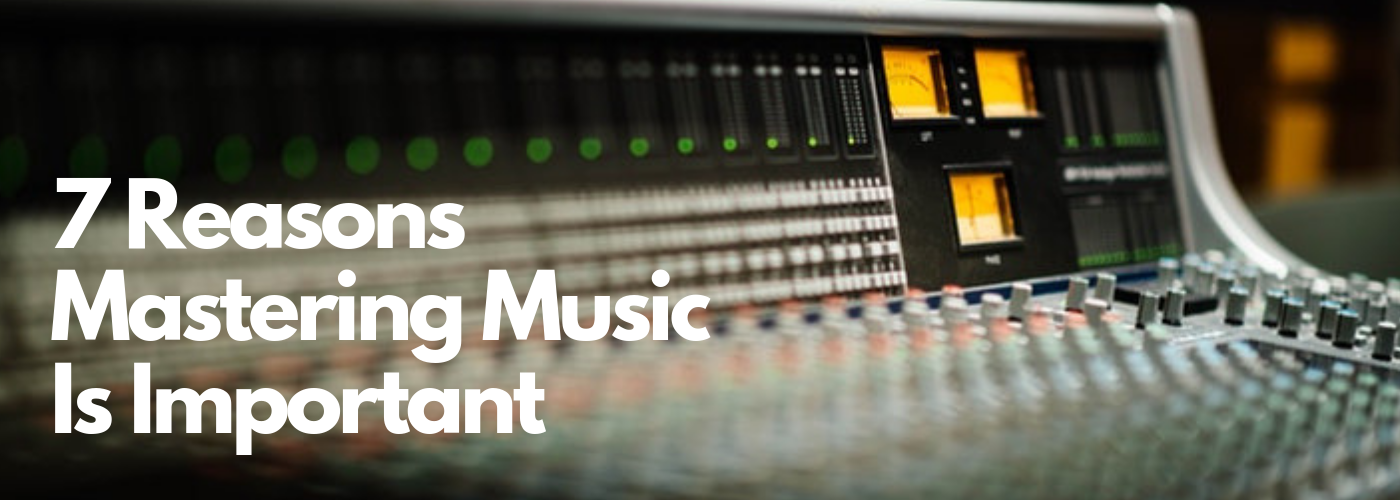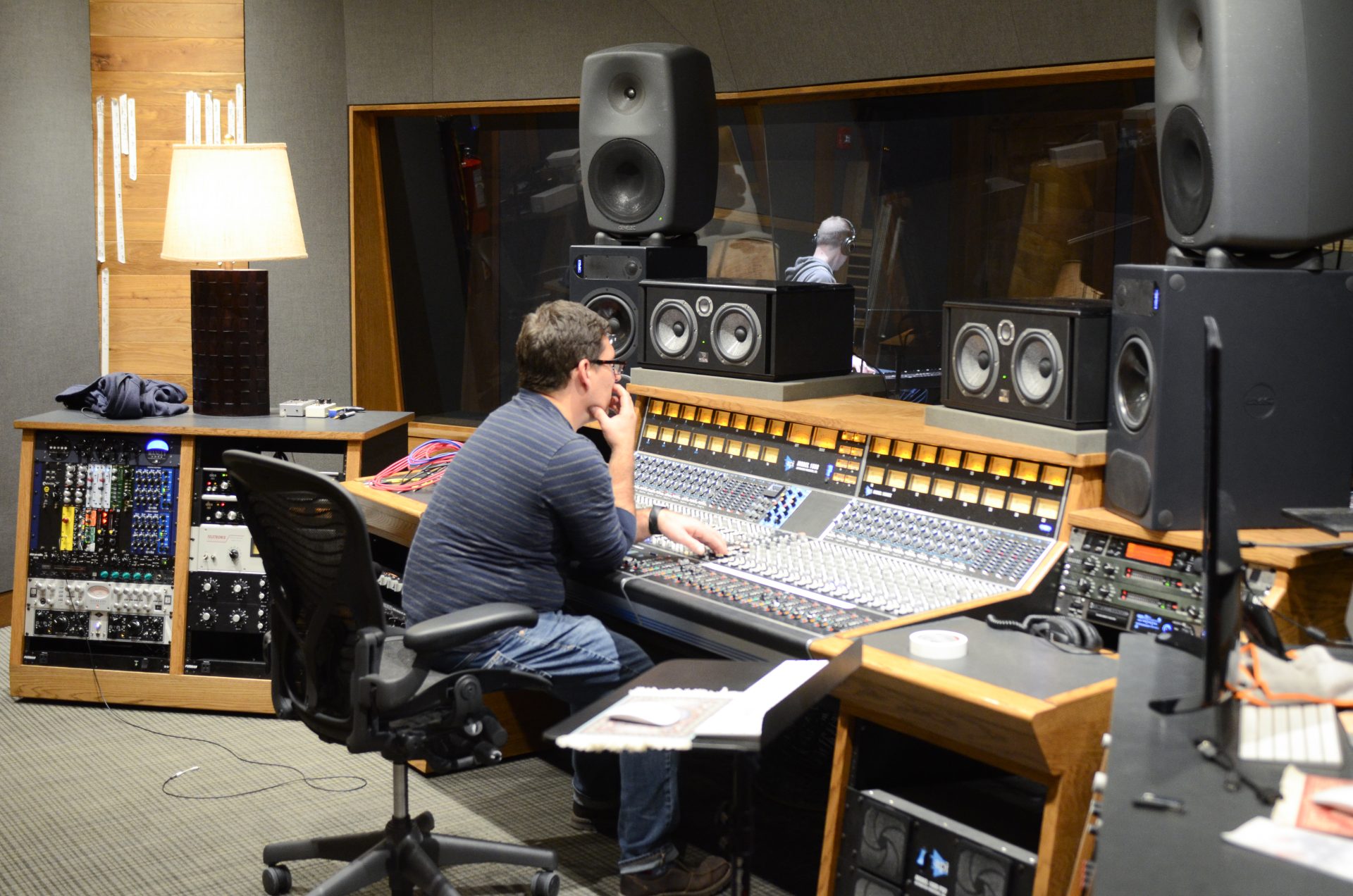Music mixing is the process of blending separate audio tracks into a final stereo mix. It is crucial in achieving a balanced and polished sound that captures the emotions and intentions of the song.
The mix should enhance and highlight every element of the music to create a cohesive and impactful final product. A well-executed mix can transform a good song into a great one and distinguishes it from other mediocre tracks. The importance of mixing lies in creating a sonic environment that instantly grabs the listener’s attention and pulls them into the story conveyed by the music.
This makes music mixing an essential element in music production, whether it is for radio, TV or film, advertised commercials, or live performances. We will delve deeper into the details of music mixing and why it is so important.
What Is Music Mixing?
What is Music Mixing?
Music mixing involves blending different audio elements like vocals, instruments, and effects to create a cohesive and balanced mix. The primary goal is to ensure that all elements are audible and working together harmoniously.
The Definition Of Music Mixing
Music mixing is the process of taking individual tracks and combining them into a final mix that enhances the overall sound quality. The mixing process involves adjusting the volume, panning, EQ, compression, and effects to create a polished and professional sound.
The Process Of Music Mixing
The process of music mixing usually starts with organizing and preparing the individual tracks for mixing. This step is essential to ensure that all tracks are properly named, labeled, and ready for editing in a Digital Audio Workstation (DAW).
The next step is to balance the levels between all the individual tracks. This process helps to create a clear and defined audio balance, allowing all elements to be heard clearly.
After balancing the levels, the mixing engineer will start shaping the overall sound by using tools like EQ and compression. EQ helps to adjust the tonal balance, while compression is used to control the dynamic range of the individual tracks.
The final step in the mixing process is adding effects like reverb and delay to create space and depth in the mix. This step helps to create a sense of space and dimension, making the mix sound larger and more professional.
In conclusion, music mixing is essential to create a polished and professional sound. Understanding the definition and process of music mixing is crucial for anyone who wants to produce high-quality music.

Credit: sundownsessionsstudio.com
The Importance Of Music Mixing
Music mixing is the process of combining different audio elements to create a final stereo mix. It’s the most crucial part of the music production process as it’s responsible for enhancing the sound quality, balancing audio levels, creating a cohesive sound, adding depth and dimension, highlighting key elements, and improving the listener experience.
Enhancing Sound Quality
Music mixing helps enhance the sound quality of a track. It involves adjusting EQ, compression, reverb, and other effects to improve the overall sound of the mix. This process helps to enhance the clarity and detail of each individual element in the mix.
Balancing Audio Levels
One of the primary goals of music mixing is to ensure that all the parts of the mix work together harmoniously. Audio levels should be properly balanced so that no one part of the mix dominates over the others. Mixing engineers adjust the levels of different instruments and elements in the mix so that each can be heard distinctly.
Creating A Cohesive Sound
Music mixing is also responsible for creating a cohesive sound that ties all the different parts of the mix together. Mixing engineers use various techniques such as panning, EQ, compression, and reverb to create a unified sound. A cohesive mix will keep the listener engaged and emotionally connected to the music.
Adding Depth And Dimension
Music mixing can add depth and dimension to a track. This helps to create a sense of space and presence in the mix, making the listener feel like they’re in the same room as the musicians. Mixing engineers use different techniques such as panning, reverb, and delay to create a sense of space and depth in the mix.
Highlighting Key Elements
One of the important roles of music mixing is highlighting key elements in the mix. This involves bringing forward important instruments or vocals while pushing other instruments or elements back in the mix. This helps to create a sense of balance and dynamics in the mix and keeps the listener engaged.
Improving Listener Experience
Ultimately, the goal of music mixing is to improve the listener experience. A well-mixed track will keep the listener engaged from start to finish and convey the intended emotional message. An experienced mixing engineer puts their skills to work to ensure that the track sounds professional, polished, and engaging for the listener.

Credit: www.stagesmusicarts.com
Frequently Asked Questions Of What Is Music Mixing Why It Is Important
Why Is Mixing Music So Important?
Mixing music is crucial as it ensures that various sounds and instruments in a track are properly balanced. By adjusting levels and frequencies, a mix engineer enhances the overall sound quality, clarity, and depth. This leads to a more enjoyable listening experience and can increase the commercial success of a song.
What Is The Most Important Thing In Mixing Music?
The most important thing in mixing music is balance. The levels of each instrument and sound should complement each other and not be overpowering. Clarity, depth, and consistency are also crucial for a high-quality mix. Ultimately, it’s about creating a cohesive and enjoyable listening experience.
What Is The Purpose Of A Music Mixer?
A music mixer is a device that allows for the blending and adjusting of multiple audio signals to create a polished final sound. Its purpose is to enhance the quality of the audio mix and bring together all the different elements of a song or recording.
What Is The Main Goal Of Mixing?
The main goal of mixing is to combine multiple audio sources into a single cohesive track. This involves adjusting levels, panning, adding effects, and EQ to make the track sound balanced and polished. Mixing is an important step in the music production process and can make or break a recording.
Conclusion
Music mixing is an integral part of the music production process. It is the art of adjusting levels, panning, and adding effects to all individual tracks to make them sound cohesive and balanced. A good mix helps bring out the emotion of the song and enhances the listener’s experience.
It is important to understand the basics of music mixing to create high-quality music that will stand out in today’s competitive music industry. By implementing the right techniques and making the right choices in mixing, you can achieve a mix that is unique, clear, and aesthetically pleasing.